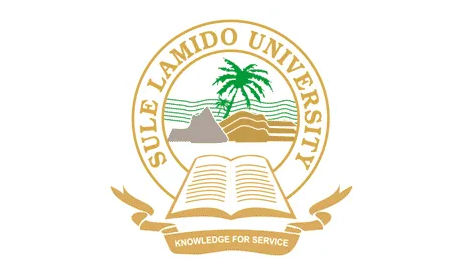Save Sule Lamido University
It is no longer news that a bill to amend the 2013 Establishment Law of the Jigawa state-owned university – Sule Lamido University (SLU), Kafin Hausa in order to STOP the 2% statutory Local Government (LG) contribution to the University is before the Jigawa State House of Assembly (JGHA). The bill has already scaled through […]

It is no longer news that a bill to amend the 2013 Establishment Law of the Jigawa state-owned university – Sule Lamido University (SLU), Kafin Hausa in order to STOP the 2% statutory Local Government (LG) contribution to the University is before the Jigawa State House of Assembly (JGHA). The bill has already scaled through second reading. The news was shocking, to say the least, and is ill-timed and ill-advised.
As the pioneer Vice-Chancellor of the University, (2013-2018) and a Stakeholder in the SLU Project, I know what the 2% contribution by the 27 LGs mean to the financial survival of the institution. I wish to appeal to members of the Jigawa State House of Assembly and His Excellency, Alhaji Muhammad Badaru Abubakar, Governor of Jigawa State and Visitor to Sule Lamido University to reconsider this action as it would have negative implications towards the development of the young university and the educational advancement of the state’s teeming youths. The 2% LG contribution is the lifeline of the university.
Sule Lamido University was established to increase access to and recoup the education deficit and its resultant consequences on the socio-economic development of the state and its populace. It is pertinent to note that when the university was licensed by the National Universities Commission (NUC) in July 2013, there was a clear and sustainable funding plan for the university (mainly the 2% LG contribution). If the LG contribution is to be abolished, what is the alternative funding plan for the university?.
The current arrangement is that the state government through the centralised Salaries and Pensions Commission pays staff salaries (personnel cost) while the university relies mainly on the 2% LG contributions for its overhead cost (day to day running) and capital expenditure, which is appropriated in the yearly budget. A budgetary provision for some capital projects is made from central treasury funding yearly but the percentage implementation has been low. The 2% monthly contribution amounts to 60-70 million naira depending on the monthly federal allocation to the state. A world-class fully furnished Senate Building and Vice-Chancellor’s lodge were constructed amongst others from the proceeds of the 2% LG contribution.
The registration fees of SLU is one of the lowest in the country. Indigenes of Jigawa State are expected to pay N30,000:00 (for humanities-based programmes) and N35,000:00 (for science-based programmes). However, the state government requested the university to collect only 25% of the registration fees (N7,500.00 or N8,750.00) per student. The 75% balance of the registration fees of each student was to be reimbursed to the university by the state government through the State Scholarship Board. To the best of my knowledge, only one session’s reimbursement was made in five years! In late 2018, it was agreed that the scholarship arrangement was not feasible and the university should recover the balance of the subsequent registration fees from the 2% LG contributions. In effect, the LG contribution is subsidising the registration fees of Jigawa indigenes. By law, 80% of admissions must be allocated to indigenes of Jigawa State while the remaining 20% is reserved for other states/nationalities. The registration fees of out-of-state students is twice that of Jigawa indigenes (N60,000.00 to N70,000.00). Furthermore, as a matter of state policy, all bonafide Jigawa female students and students with any form of disability or whose parents have any form of disability enjoy FREE education (including accommodation for the female students).
The implication of the withdrawal of the 2% LG contributions is that all these laudable programmes would cease and it will invariably affect the smooth running of the university or even cripple its basic operation. It will also mean depriving thousands of Jigawa indigenes an opportunity to access free and subsidised education. This will in turn be detrimental to the socioeconomic potentials attributed to education in the state. The university will be compelled to review and charge students appropriate fees. Also, many on-going capital projects that are dependent on the 2% LG contributions would be abandoned due to lack of funds. I, therefore, wish to strongly appeal that this bill should be withdrawn in the best interest of the educational advancement of Jigawa State. A stitch in time saves nine.
Professor Abdullahi Yusufu Ribadu, Pioneer Vice-Chancellor, Sule Lamido University, Kafin Hausa, Jigawa State
